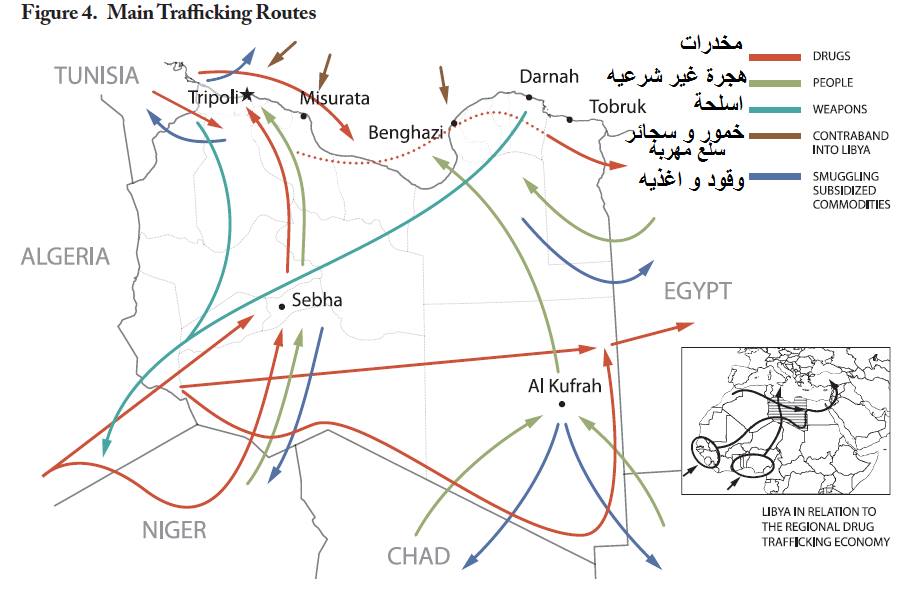![The USIP report on the illicit trade in Libya concludes that it has negative . . .[restrict]effects on Libya's stability (Photo: USIP).](http://www.libyaherald.com/wp-content/uploads/2014/02/69-USIP-illicit-trade-report-260214-300x196.jpg)
Tripoli, 26 February 2014:
A report on illicit trade in Libya published last Monday by the United States Institute of Peace concludes that illicit trade is driving crime and security and political instability, with regional ramifications, in transitional Libya.
This report, authored by Mark Shaw and Fiona Mangan, which draws from more than two hundred interviews across Libya, says it seeks to improve the understanding of the nature of illicit trafficking and smuggling in the country and to identify emerging patterns of organized crime and their impact on state consolidation and stability.
It goes on to say that its goal is to help define possible policy options, including ways the international community might support stability and development for the country and the region.
The study, which was supported by the International Narcotics and Law Enforcement Bureau of the U.S. State Department, is part of a portfolio of rule of law work that the United States Institute of Peace (USIP) is carrying out in Libya.
The report says that criminal activities are driving conflict in post revolutionary Libya and undermining state consolidation. The foundation of the illicit economy in Libya rests on four interconnected markets: weapons, migrants, drugs, and smuggled goods.
A widespread prevalence of weapons has completely changed the game in Libya and has led to an industry in criminal protection. The dynamics of criminal activity and the development of illicit markets have different trajectories in northern coastal cities and inland towns and border areas, USIP says.
Many local conflicts, it reports, are driven by competition over illicit resources, and the capacity to provide or guarantee protection for illicit trade has become a major lever of influence. Criminal control is consolidating into fewer hands, and groups with the most resources are best placed to leverage control and political influence, the report has discovered.
The report says that ironically, it is the criminal economy rather than joint and inclusive governance that binds the regions of Libya together. Organized criminal behavior, illicit trafficking and trade, and the armed groups that perpetrate them are harming the transition at a time when consolidating institutions of statehood is critical, it adds.
Offering possible solutions to these problems, the USIP report says that it is imperative to begin an effective response to organized crime now—with interventions in the political, economic, social, and security spheres.
It also adds that the international community must be sensitive to Libya’s regional and international vulnerabilities.
An appropriate response may rely less on justice and security interventions and more on carefully calibrated political management coupled with well-deployed development.
Equally, the report stresses that such a response also must undercut the market for protection and reestablish state control.
Such an approach, it explains, would include marginalized groups and border communities in the political process, educate the public about the costs and consequences of illegal activities, reinstate state institutions of security to replace criminal protection arrangements, and transition from cash payouts and commodity subsidies to sustainable economic opportunities.
Ultimately, the report says that as Libya emerges from forty years of autocratic rule, the criminal economy is undermining government efforts at state consolidation. The report maps the flow of weapons, migrants, drugs, and smuggled goods through Libya and details the interactions between armed groups who control illicit markets and local communities. The authors warn that efforts to beef up border control policing will not be sufficient.
Combating organized crime in Libya, it explains, requires a broader approach that will engage marginalized groups in a political process. Failure to do so will affect not only Libya but the region as well.
For the full see: www.usip.org
[/restrict]








